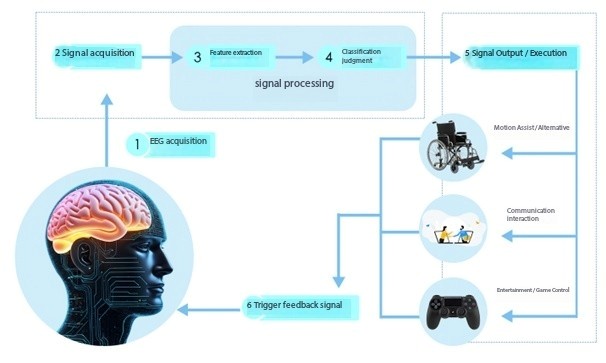2025-08-19

1. Disease diagnosis and treatment:
In the field of neurosurgery, brain computer interfaces (BCIs) can provide a channel for patients and people with disabilities to communicate and interact with the external world, solving challenges such as inability to speak, write, or move.
2. Improve sub-health conditions:
Helps manage stress, improve sleep quality, promote physical and mental balance, enhance attention and focus, help relax and relieve stress, and actively improve sub-health conditions.
3. Treatment of neurological disorders:
Brain computer interface (BCI) technology can be used to treat neurological disorders and help paralyzed patients restore limb function. By controlling external prosthetics or wheelchairs, it enables them to regain mobility, promote rehabilitation, and improve their quality of life.
4. Mental illness:
In the treatment of mental illnesses, brain computer interface (BCI) technology can help alleviate symptoms in patients such as obsessive-compulsive disorder (OCD), depression, and autism.
5. Chronic diseases:
By monitoring and regulating brain activity, patients can improve their mental state, which can have a positive impact on the treatment and rehabilitation of chronic diseases such as heart disease and hypertension.
In recent years, the application of Brain Computer Interaction (BCI) technology in the field of rehabilitation medicine has made breakthrough progress. In June 2015, Wired magazine and the Daily Mail reported on a non-contact brain monitoring device using brain computer interface technology. This device can capture the driver's brain signals to monitor whether they are drowsy, focused, or experiencing negative emotions, thereby significantly improving driving safety.